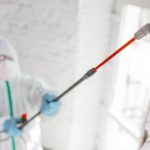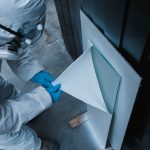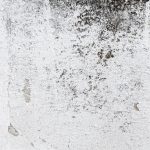
In Southwest Florida, where high humidity and frequent rainfall are part of the climate, mold prevention is essential for maintaining a safe, healthy home environment. Regular inspections can be one of the most effective strategies to prevent mold issues before they become severe. In cities like Naples, Fort Myers, Cape Coral, and Bonita Springs, proactive mold inspections can save homeowners from expensive remediation costs and protect against the health risks associated with mold. Here’s why scheduling regular inspections can be crucial in Southwest Florida’s unique environment.
Why Mold Inspections Matter in Humid Climates
The climate in Southwest Florida is ideal for mold growth due to warm temperatures and high humidity levels that often exceed 60%, the threshold at which mold can thrive. Even minor leaks or hidden damp areas can quickly become breeding grounds for mold, leading to potential health issues and structural damage. Regular inspections help homeowners detect and address mold-prone areas before issues escalate.
Benefits of Regular Mold Inspections
- Early Detection Saves Time and MoneyMold growth can be slow and often hidden behind walls, under floors, or in other hard-to-see areas. Regular inspections allow for early detection of moisture issues, leaks, or even minor mold growth before they develop into more significant and costly problems. Addressing mold at an early stage is generally less invasive and less expensive than full-scale remediation.
- Example: In Fort Myers, a homeowner with a small leak behind the kitchen sink may not notice mold forming until it’s already spread to the surrounding cabinets and flooring. Regular inspections can catch these leaks before the mold spreads, minimizing both damage and repair costs.
- Protects Health and Indoor Air QualityMold releases spores into the air, which can lead to respiratory issues, allergies, and other health problems, especially for individuals with asthma or compromised immune systems. Regular inspections ensure that mold-prone areas are monitored and that any potential growth is addressed before it affects indoor air quality.
- Tip: If you or your family members have been experiencing unexplained allergies, respiratory issues, or headaches, it may be due to hidden mold. A mold inspection can identify problem areas that may be impacting your health.
- Prevents Structural Damage to Your HomeMold doesn’t just grow on surfaces—it can penetrate materials like drywall, wood, and insulation, leading to structural damage over time. Regular inspections can identify areas at risk, such as attics, basements, and crawl spaces, allowing for preventative measures to protect the integrity of your home.
- Example: Homes in Bonita Springs, especially those near the coast, may experience increased humidity in crawl spaces. Regular inspections can help identify areas where moisture is seeping in and prevent mold from compromising structural beams or insulation.
- Reduces the Risk of Property Value DeclineHomes with mold issues can see a decline in property value, as prospective buyers are often hesitant to invest in a property with mold problems. Regular inspections help ensure that any mold growth is addressed quickly, preserving the home’s value and making it easier to sell if the time comes.
- Tip: If you’re planning to sell your home in the Naples area, having a history of regular mold inspections can be a valuable asset, as it shows prospective buyers that the property has been well-maintained and monitored.
- Minimizes the Impact of Southwest Florida’s Climate on Your HomeRegular inspections are particularly helpful in humid climates like Southwest Florida, where mold can grow even in unexpected areas. High humidity, frequent rain, and potential flooding make homes in areas like Cape Coral more vulnerable to mold. Inspections help you stay ahead of these climate challenges by catching moisture issues before they become mold problems.
- Example: After a heavy rainstorm, a homeowner in Cape Coral might notice a slight musty odor in the basement. A regular inspection can detect hidden moisture accumulation and prevent it from becoming a larger issue.
What to Expect During a Mold Inspection
A professional mold inspection typically involves several key steps:
- Visual Assessment
Inspectors start by conducting a thorough visual assessment of both interior and exterior areas, checking for signs of moisture, water stains, or visible mold growth. - Moisture Detection
Tools like moisture meters or infrared cameras are used to identify moisture behind walls, under floors, and in other hidden areas. This helps detect water leaks or damp areas that may not be immediately visible. - Air and Surface Sampling
Air quality testing may be conducted to check for elevated mold spore levels, while surface samples can confirm the presence of mold on visible surfaces. These samples can help identify the type of mold, which determines the best course of action for remediation. - Detailed Report and Recommendations
After the inspection, a detailed report is provided, including findings and recommended actions for moisture control, repairs, or potential remediation if mold is present.
How Often Should You Schedule Mold Inspections?
In humid areas like Southwest Florida, it’s recommended to schedule a mold inspection at least once a year. Homes with previous mold issues, water damage, or older structures may benefit from more frequent inspections. Additionally, consider an inspection:
- After heavy storms or hurricanes
- When planning to sell your home
- If you’ve recently experienced water leaks or flooding
- If you notice a persistent musty odor or allergy symptoms indoors
Proactive Steps Between Inspections to Prevent Mold
Between regular inspections, taking preventive steps can reduce mold risk:
- Control Indoor Humidity: Use dehumidifiers, especially in basements, bathrooms, and kitchens, to maintain humidity levels below 60%.
- Fix Leaks Immediately: Address plumbing leaks, roof leaks, or any moisture source as soon as possible to prevent water accumulation.
- Improve Ventilation: Use exhaust fans in bathrooms and kitchens and increase ventilation in areas with high moisture.
- Use Mold-Resistant Materials: If renovating, choose mold-resistant drywall and paint, particularly in moisture-prone areas.
How QCI Online Helps Southwest Florida Residents Prevent Mold
At QCI Online, we specialize in comprehensive mold inspections, testing, and remediation for homeowners across Naples, Fort Myers, Cape Coral, Bonita Springs, and other nearby areas. With over 28 years of experience, our team understands Southwest Florida’s unique challenges and is committed to helping residents maintain mold-free homes.
Our services include:
- Thorough Mold Inspections: We use advanced technology to identify hidden mold and moisture issues in all areas of your home.
- Detailed Reports: Our detailed reports provide clear insights and actionable recommendations for mold prevention and moisture control.
- Mold Remediation: If mold is detected, we offer safe, chemical-free remediation to restore a healthy environment.
- Preventive Guidance: We’ll advise you on best practices to keep your home mold-free in Southwest Florida’s humid climate.
Contact QCI Online for Mold Inspections in Southwest Florida
Protect your home and health by scheduling regular mold inspections with QCI Online. Serving Naples, Fort Myers, Cape Coral, Bonita Springs, and surrounding areas, we’re dedicated to providing reliable and effective mold prevention solutions. Contact us today at (239) 777-2875 or visit our website at qci-online.com to schedule an inspection and take the first step toward a healthier, mold-free home.
With regular inspections and the right preventive steps, Southwest Florida homeowners can effectively protect their homes from mold and enjoy peace of mind, knowing that their living environment is safe and well-maintained.






